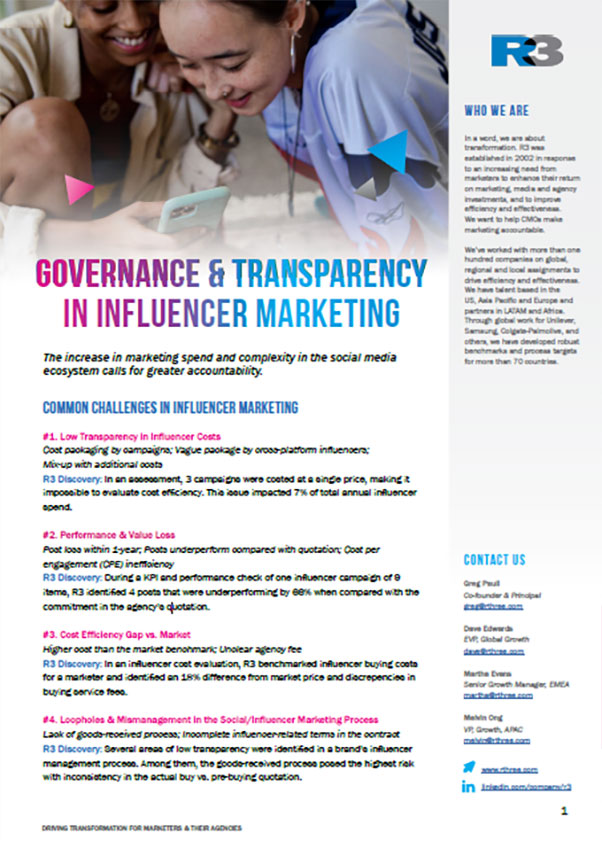This handout outlines common challenges marketers face in influencer marketing, the evolving influencer journey, and the influencer landscape.
Governance in influencer marketing is crucial for maintaining ethical practices, protecting brands, ensuring compliance with legal requirements, measuring performance, managing risks, and fostering long-term partnerships. It provides structure, guidelines, and accountability to drive successful influencer marketing campaigns while safeguarding the interests of all stakeholders involved.
Some issues that good governance oversees are:
Ethics & Transparency: Ethical practices, transparency, and disclosure of sponsored content to maintain trust and authenticity among the audience. Governance helps prevent deceptive practices and ensures that influencers and brands comply with relevant laws and regulations.
Brand Protection: Selecting influencers whose personal brand aligns with the values of the brand they are promoting. Setting guidelines and standards ensures content creation is in line with the brand’s identity and objectives. Effective governance safeguards the brand’s reputation and mitigates potential risks associated with inappropriate or damaging content.
Compliance & Legal Considerations: Influencer marketing is subject to various legal and regulatory frameworks, such as advertising laws, disclosure requirements, and data protection regulations. Governance ensures that influencers and brands adhere to these regulations, reducing the risk of legal repercussions. It includes providing clear guidelines on disclosure of sponsored content, intellectual property rights, and any other legal considerations relevant to influencer marketing activities.
Performance Measurement: Governance facilitates the establishment of key performance indicators (KPIs) and metrics to evaluate the success and impact of influencer marketing campaigns. It helps define measurable objectives, track performance, and assess the return on investment (ROI) of such initiatives. By monitoring and analyzing campaign results, governance enables brands to make informed decisions, optimize strategies, and improve future campaigns.
Risk Management: Governance establishes protocols and guidelines for risk identification, assessment, and mitigation. It helps brands set expectations, outline responsibilities, and implement measures to minimize risks associated with collaborations, ensuring a proactive approach to risk management.
Long-Term Partnerships: Governance supports the development of long-term relationships between brands and influencers. By fostering strong partnerships, governance helps create sustainable influencer marketing strategies that yield consistent results and build a loyal audience over time.

